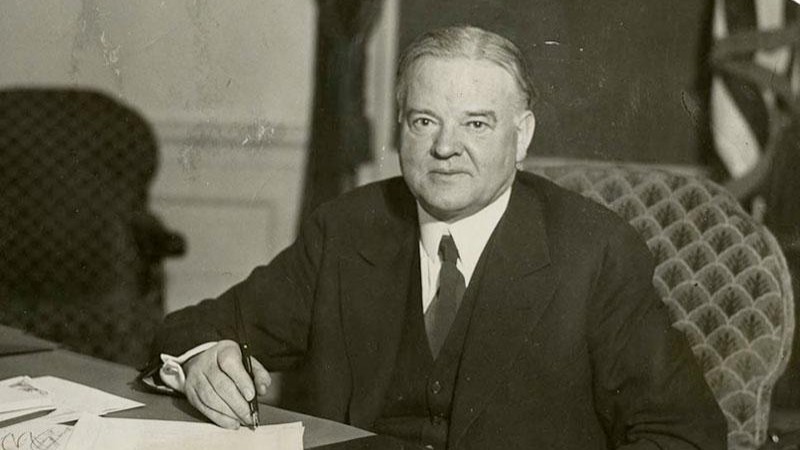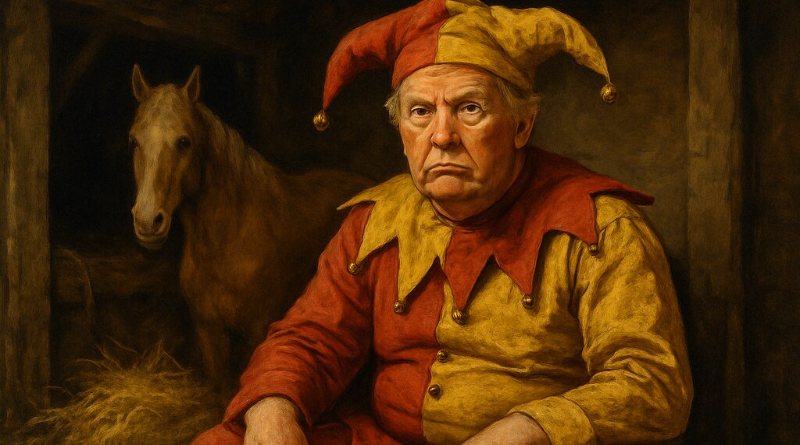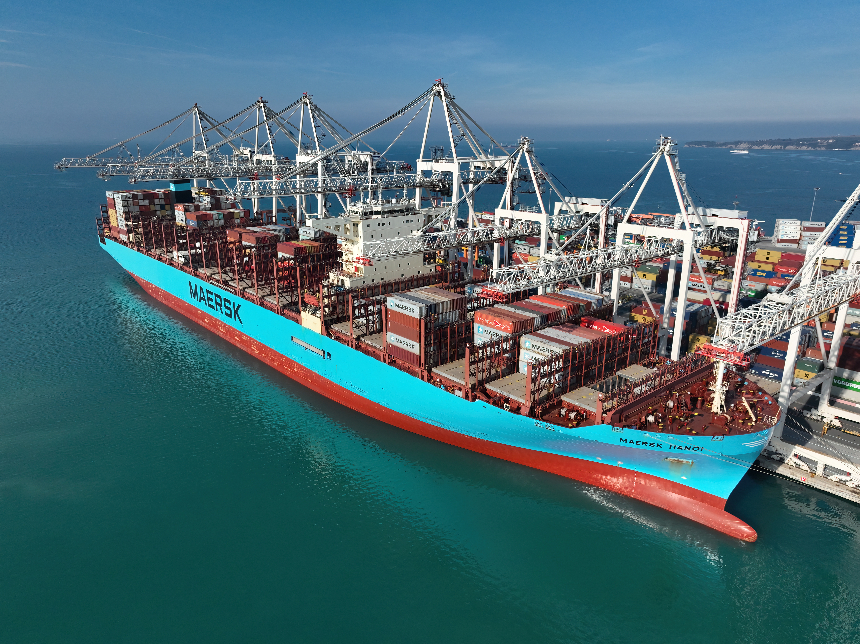Support CleanTechnica’s work through a Substack subscription or on Stripe.
Last week, Carolyn Fortuna had an interesting article on Kamala Harris. Within that article, Harris had a quote that asked an important question: “Why. Didn’t. I. Separate. Myself. From. Joe. Biden?”
Overall, the most obvious answer to that question was that she didn’t have much time. Introducing ideas takes time, especially when you are busy trying to introduce yourself to people. Getting those people to understand those new ideas takes more time. Getting them to see the implications is not quick or easy. Candidates tend to listen to polls for what people want now and then repeat it back to them. Staying the course is easier.
But we have time now. Time before the next presidential election. Time to explore new ideas. People have time to wrap their minds around them. We have the time to change course. Time to explore how to separate ourselves from the past and take a new path into the future.
Trump’s simplicity clearly reveals flaws in approaches that might have been less noticeable with a more moderate execution. Opinions are shifting against Trump’s policies, especially regarding trade. We can further expose bad policies. We can create contrast with better policy. Leaders have an opportunity to lead on policy ideas, even if they are not yet in power to execute them.
We also are free to separate ourselves from Biden. Blind loyalty does not help. We are free to criticize. The election is over. We do not have to debate whether distancing ourselves helps Trump. People can still support their team while policy evolves. Holding onto bad policy out of loyalty hurts us going forward.
Which gets to another article by Steve Hanley on trade. Whether or not you think anyone can truly win a trade war, the US is clearly losing. Tariffs are being taken up by a the Supreme Court this week, which could have a long-term impact not only on trade, but also on presidential powers. A shift in direction on trade could differentiate from the disfunction and lead to better overall policy moving forward.
Protectionism Increases the Price of Cleantech
Tariffs increase prices. Not just when a Republican is in office. When those tariffs target cleantech, they raise prices compared to fossil fuels and legacy industry. Subsidies can only partially compensate. Despite the “Inflation Reduction Act,” the net effect was increased US prices with trailing renewable energy and EV adoption rates.
In the US, we pay over three times as much per watt on solar panels compared to China. That price does not count the 45X transferable manufacturing tax credits that also add up to more than the total cost of solar panels in China. Those tax credits continue under Trump, even though the 30% residential consumer tax credit is going away at the end of the year. With a change in trade policies, solar panel prices could be closer to Europe.
The average transaction price for EVs in the US in August was $57,245, according to Kelley Blue Book, which is more than three times BYD’s average selling price of $16,700 for 2024. Those are not apples to apples metrics, as BYD’s number was the price of vehicles sold to dealers, rather than the retail price. However, even when factoring in the $7,500 tax credit, our prices were still far more than double. Now, the rising protectionism on materials and components and the elimination of consumer subsidies are poised to make EVs even more expensive. Many manufacturer subsidies also continue for EVs, including the $45/kWh Battery Production Tax Credit, but we are not meaningfully closing the price gap. Trade has the potential to drop EV prices below legacy fossil-fueled vehicles.
Increasing the price of cleantech has economic consequences. For solar, the bulk of jobs are associated with installation and implementation. Multiplying the cost of the critical enabling component impacts net jobs. Most of the economic and environmental benefit from clean technology comes from the decades of usage, rather than the initial manufacturing. Increasing the price of clean technology slows adoption and the resulting usage. That perpetuates fossil fuel use and extractive economic models. That put us on the wrong path in the long term.

Politics of Protectionism
Biden and Trump are easily the two most protectionist US presidents since Herbert Hoover. There is a simplistic “us vs. them” mindset behind protectionism that doesn’t appreciate the increased value creation that accompanies increased value exchange between countries. Trade is not a zero-sum game. Hoover’s protectionist policies amplified the Great Depression, which taught an economic lesson the hard way. Many people, unfortunately, forgot that lesson. The continued inflation of prices under Trump will likely lead to a painful reminder.
Among Democrats, Biden was the most protectionist President in the two-century history of the Democratic Party. There are relatively few policies that extend from the pre-Civil War Democratic Party through to the post-Civil Rights Democratic Party other than an aversion to tariffs. There have been some outlier policies, like LBJ’s chicken tax, but other Democratic presidents removed more trade barriers than they added. Biden also issued more sanctions than any prior president of either party. There is potential to differentiate from both Biden and Trump.
Not that free trade is a purely Democratic idea. The intellectual conservative movement, with people like Ayn Rand and William F. Buckley, supported free trade. Republicans after WWII saw the economic errors of Hoover and tended to support free trade with an overall bipartisan consensus. Up until Trump. I know Republicans who would like a return to more intelligent trade policy. There is also an opportunity for a Republican who decides to distance himself from the obvious destruction Trump is creating.
Trump started a love affair with tariffs that Biden accelerated. Biden being more protectionist in action than Trump’s first term but less protectionist than what Trump proposed for his second term did not create much contrast. Having a nuanced presentation on the same policy direction does not create a lot of differentiation either. Trump has taken protectionism to new levels in his second term. With enough time, Harris could have differentiated herself with support of free trade, rather than just continuing a slower protectionist escalation. If Harris had the opportunity to communicate a policy focused on increasing trade to support cleantech adoption and accelerate progress, the contrast would be even more significant.

Own Being Smart
At this point, many are probably thinking that what I just suggested would be political suicide. The common assumption is that there is no way that our populist politics based on personal attacks and soundbites would support rational policies. Xenophobes will persist in their ignorance. Bigotry will perpetuate its fallacies. But maybe. Just maybe. We are not giving people enough credit.
Maybe, if we take the time to talk to people in terms they can understand, they will start to understand the concept. Jargon and acronyms can be avoided, but full sentences and logic are good things. Simply parroting back what pollsters say voters already believe might get agreement. But it is not evolving the beliefs that can evolve policy.
A leader should lead people to a better path forward. Elections should not just be a popularity contest or a contest of insults. Pandering to the most ignorant elements of society can be effective in drumming up votes in the short term, but it really does not set up a competition that educated Democrats are positioned to win long term. A more intellectual approach could turn some people off. However, were those people ever going to strongly support a highly educated, mixed-race female lawyer in the first place?
So, own it. Take the smart position and take the time to explain that position. Republicans can also take smart positions with a more conservative approach. We can have intelligent debates from different perspectives. We have time before the next presidential election to shift the narrative. And many people are already realizing that there is something wrong with Trump’s policies, such as protectionism. A little guidance can help people to understand what is wrong. Taking a slightly less stupid position does not create contrast. Try being smart.
We can take a smart position on trade. And that is just one of several ways that we can pursue smarter policy moving forward.
Featured image: “MAERSK HANOI Container Ship (Port Koper SIKOP, 2023)” by Petar Milošević (CC BY-SA 4.0 license).
Sign up for CleanTechnica’s Weekly Substack for Zach and Scott’s in-depth analyses and high level summaries, sign up for our daily newsletter, and follow us on Google News!
Have a tip for CleanTechnica? Want to advertise? Want to suggest a guest for our CleanTech Talk podcast? Contact us here.
Sign up for our daily newsletter for 15 new cleantech stories a day. Or sign up for our weekly one on top stories of the week if daily is too frequent.
CleanTechnica uses affiliate links. See our policy here.
CleanTechnica’s Comment Policy


